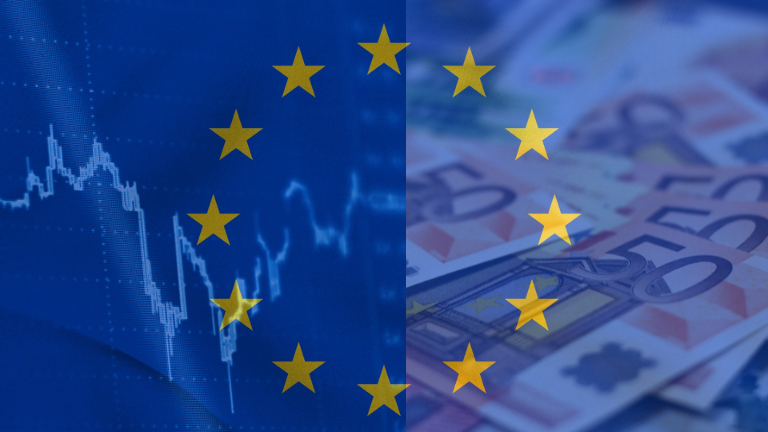Capital Markets Union
Mobilising Markets for the Future:

Capital markets union
© FNF EuropeRecognising this challenge, the European Commission presented the Omnibus I simplification package at the end of February to reduce administrative burdens and improve the practical implementation of existing rules, particularly for small and medium-sized enterprises. It proposes significant reductions in reporting and due diligence requirements, particularly in the Corporate Sustainability Reporting Directive (CSRD), which requires companies to disclose how they address environmental and social issues, and the Corporate Sustainability Due Diligence Directive (CSDDD), which obliges companies to identify and respond to risks such as human rights violations or environmental harm in their supply chains.
The Omnibus I package is currently going through interinstitutional negotiations between the European Parliament and the Council. The “stop-the-clock” option, which mandated a delay of entry into force of CSRD and CSDDD, was adopted by the European Parliament in April 2025 with broad support.
MEP Pascal Canfin (Renew Europe) underlined the importance of this move, noting: "Without the stop-the-clock, around 40,000 companies would be left in the dark about what information they are expected to collect and report. In times of global uncertainty, like the new US tariffs, the very least we can do is offer businesses a stable and predictable regulatory environment."
At this stage, negotiations on the content of the Omnibus I will shortly take place in both EU bodies, with a final agreement expected in the last quarter of 2025.
Strengthening Europe’s competitiveness must now become the guiding principle across all economic and regulatory initiatives. This requires both cutting unnecessary bureaucracy and accelerating capital mobilisation to support innovation, growing businesses, and strategic industries. Sustainable finance plays a key role by channelling capital into economic renewal and advancing climate and energy goals.
Mobilising Capital for the Green Transition
As MEP Svenja Hahn (Renew Europe) has emphasised, the single market is key to making Europe globally competitive. With the United States becoming less attractive for talent and capital, Europe must act quickly to improve its investment environment by completing the Capital Markets Union (CMU), reducing regulatory barriers, and expanding infrastructure for innovation and data.
At the same time, Europe needs to better activate its own financial potential. The EU is working to better connect its pool of private savings with investment in the green and digital transitions. The planned Savings and Investment Union (SIU) aimed at improving financial opportunities for citizens and better linking savings with investment, builds on the CMU and presents a strategic opportunity to integrate sustainability more deeply into European financial policy. Together, these initiatives aim to create robust frameworks that channel private capital into key sectors such as renewable energy, green infrastructure and innovative startups. These sectors often struggle to access sufficient bank financing, and by supporting them, the CMU and SIU could help close funding gaps and advance the transformation of Europe's economy.
But challenges remain, including differences in national supervision, insolvency rules and tax systems. More harmonisation, for example through common insolvency laws and stronger pension systems, could lower legal and administrative barriers and make it easier to invest across borders. In Germany, former FDP deputy parliamentary group leader Johannes Vogel has renewed calls for a statutory equity pension ("Aktienrente"), based on the Swedish model. He argues that a long-term reform of social security systems must involve a stronger role for capital markets. Only in this way can the pension system meet the challenges of the future. Although previous reform attempts came to a halt, momentum is building again, supported across party lines.
If realised, such equity-based pension schemes would not only help stabilise national social security systems, but also create large, long-term pools of capital that could be directed into climate infrastructure, clean technologies and innovation-driven sectors, in line with CMU goals and contributing to deeper, more resilient capital markets across Europe. For European citizens and businesses, it could mean more reliable access to financing, higher pensions and increased investment in sectors that create sustainable jobs and future-oriented growth.
Making Europe Investable
The urgency of putting Europe’s private savings to more productive use has grown, as current investment levels remain insufficient. Public funding makes up only about 1 percent of the EU’s economic output, far below the estimated 750 to 800 billion euros needed each year. At the same time, venture capital is falling sharply, and European households invest more than 300 billion euros outside Europe every year.
Building a real Savings and Investment Union also means making it easier for people across Europe to trust, access and participate in financial markets. This is especially important because much of the EU’s household savings is still held in bank deposits or invested in foreign funds, mainly in the United States.
The Letta report puts forward a promising idea: a long-term European savings product that people would be automatically enrolled in. It would work across different companies and EU countries, making participation easier. If designed with clear rules, tax advantages and a simple digital interface, such a product could help more people save and invest within the single market.
The SIU is still taking shape, but its success will depend on the trust of citizens and investors, clearly defined responsibilities among EU and national authorities, and a framework that makes economic sense. If Europe wants to attract private capital for the green transition, it needs clarity, openness and a supportive environment for doing business. That means making sustainable finance easier to understand and to use, especially for small and medium sized companies.
Fine tuning, when it adds more complexity and technical requirements, only reinforces overregulation instead of resolving it. Europe needs a coherent and innovative plan for its sustainable finance regime; one that strengthens the capital markets union, drives innovative investments, facilitates access to finance to SMEs, and removes unnecessary complexities. Sustainable finance can be a catalyst for growth and resilience, and Europe holds the key to manifest it.
